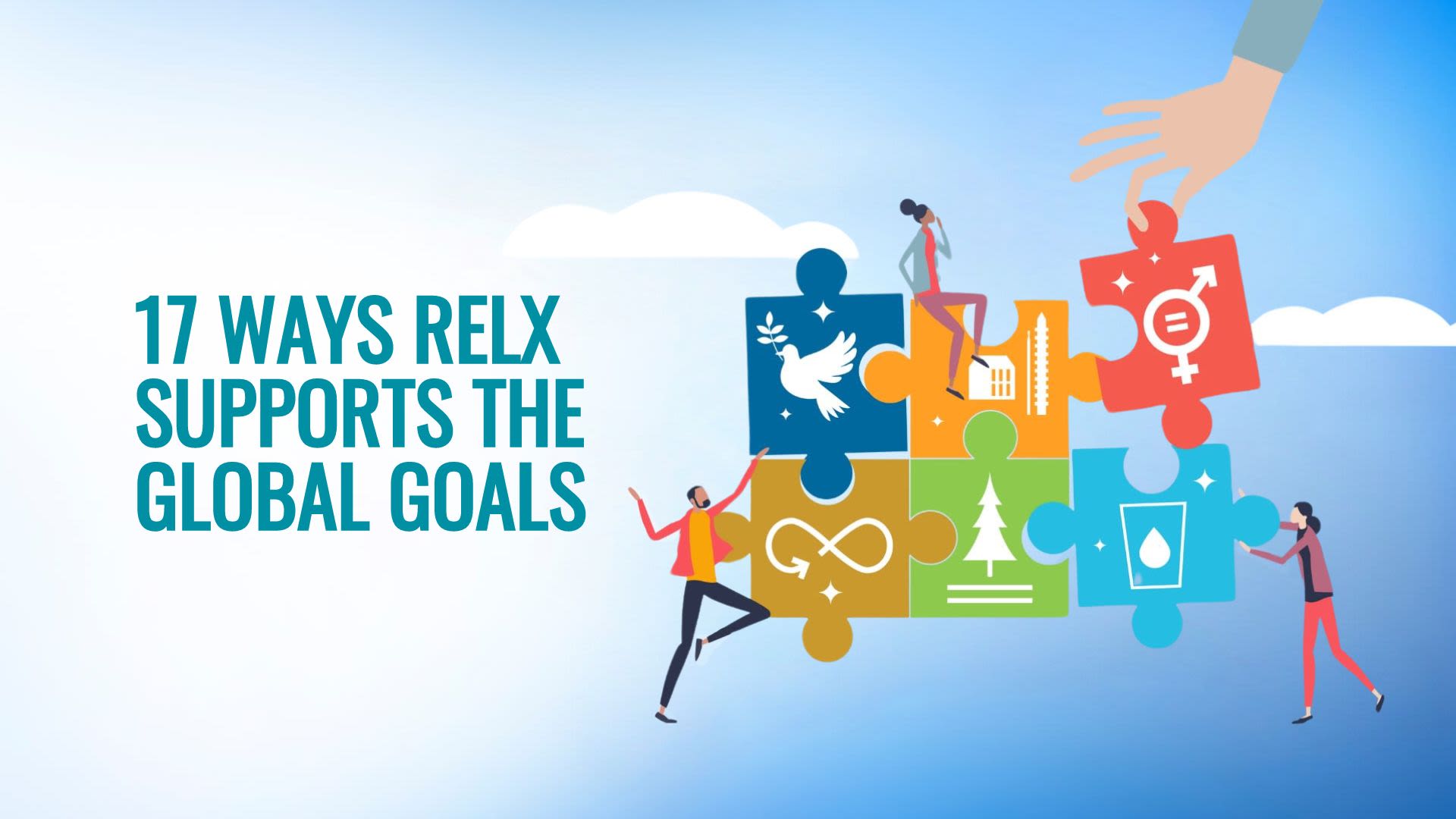
In 2015, a global agenda to ensure a fairer, safer and more sustainable future by 2030 was unanimously adopted by the 193 Member States of the United Nations. The Sustainable Development Goals or SDGs are the to-do list for the world.
As we pass the halfway point for the SDGs, many of the goals are worryingly off track and progress on 85% of the target indicators has stalled or even reversed.
Through our information, products and people, RELX remains committed to advancing the Goals. Here are some of the ways that we continue to support their achievement.
The SDGs aren't just a list of goals. They carry the hopes, dreams, rights and expectations of people everywhere.
In this video, find out how RELX is contributing to the United Nations Sustainable Development Goals. Watch time ~ 6 minutes
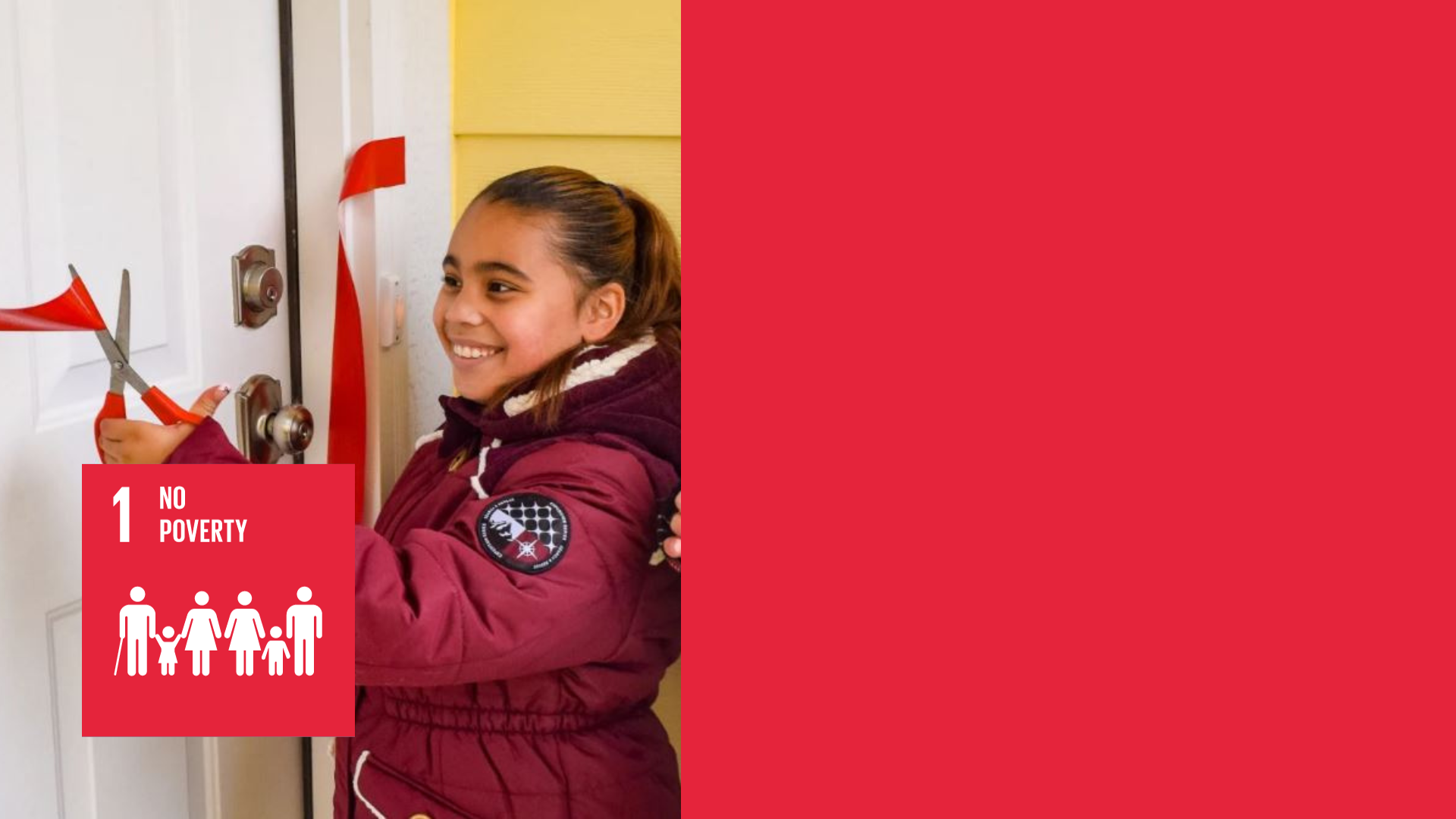
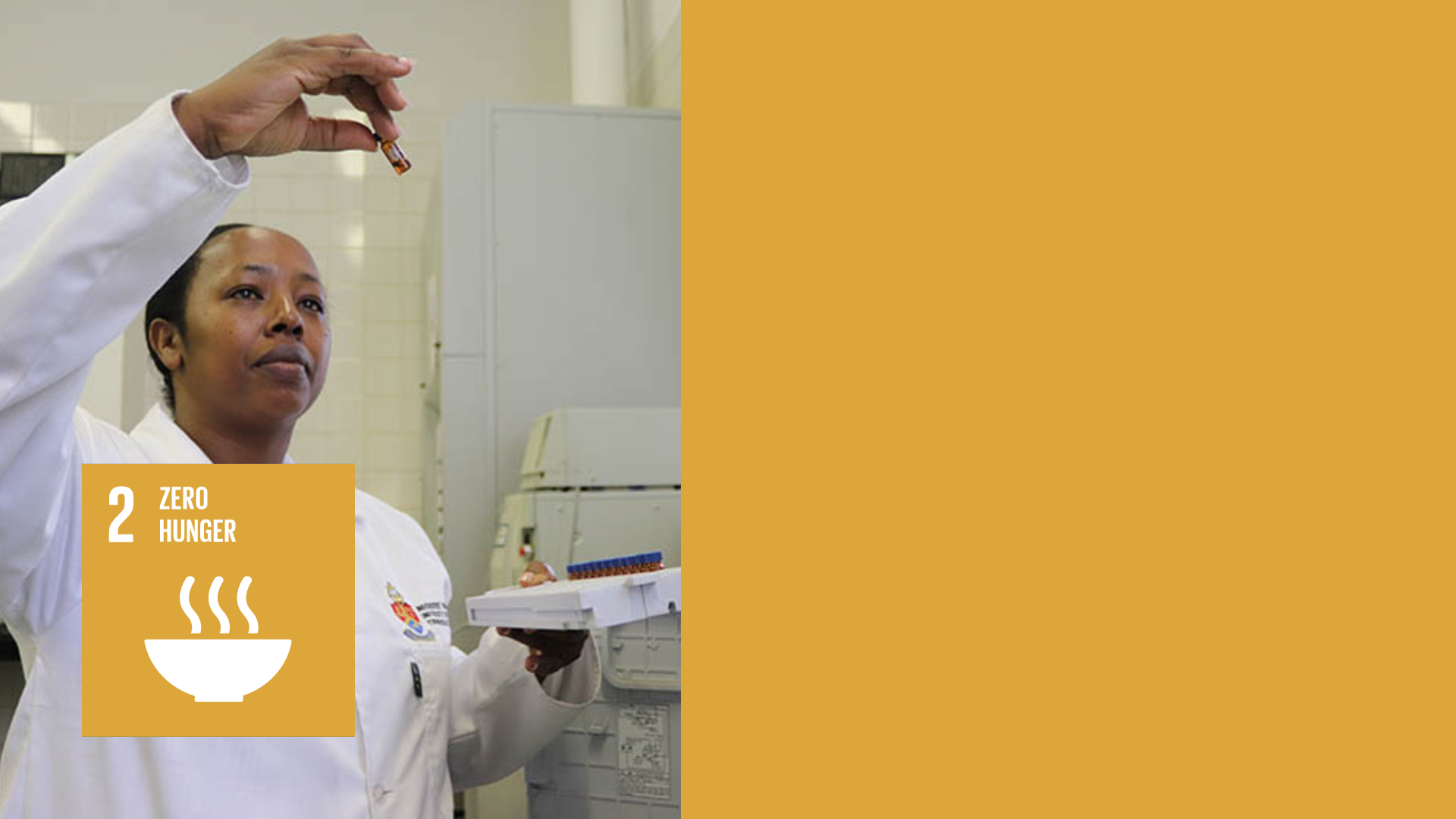
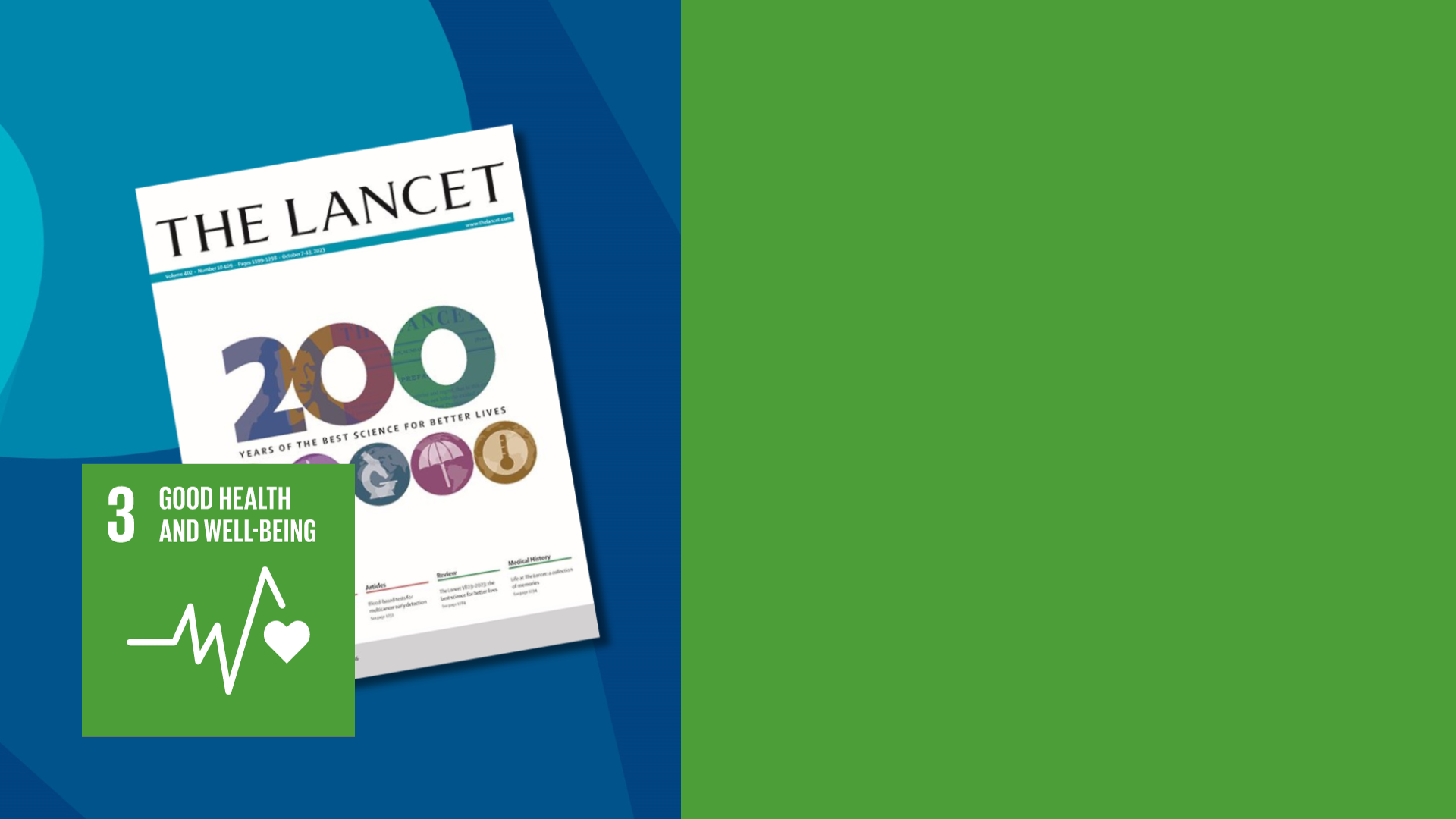
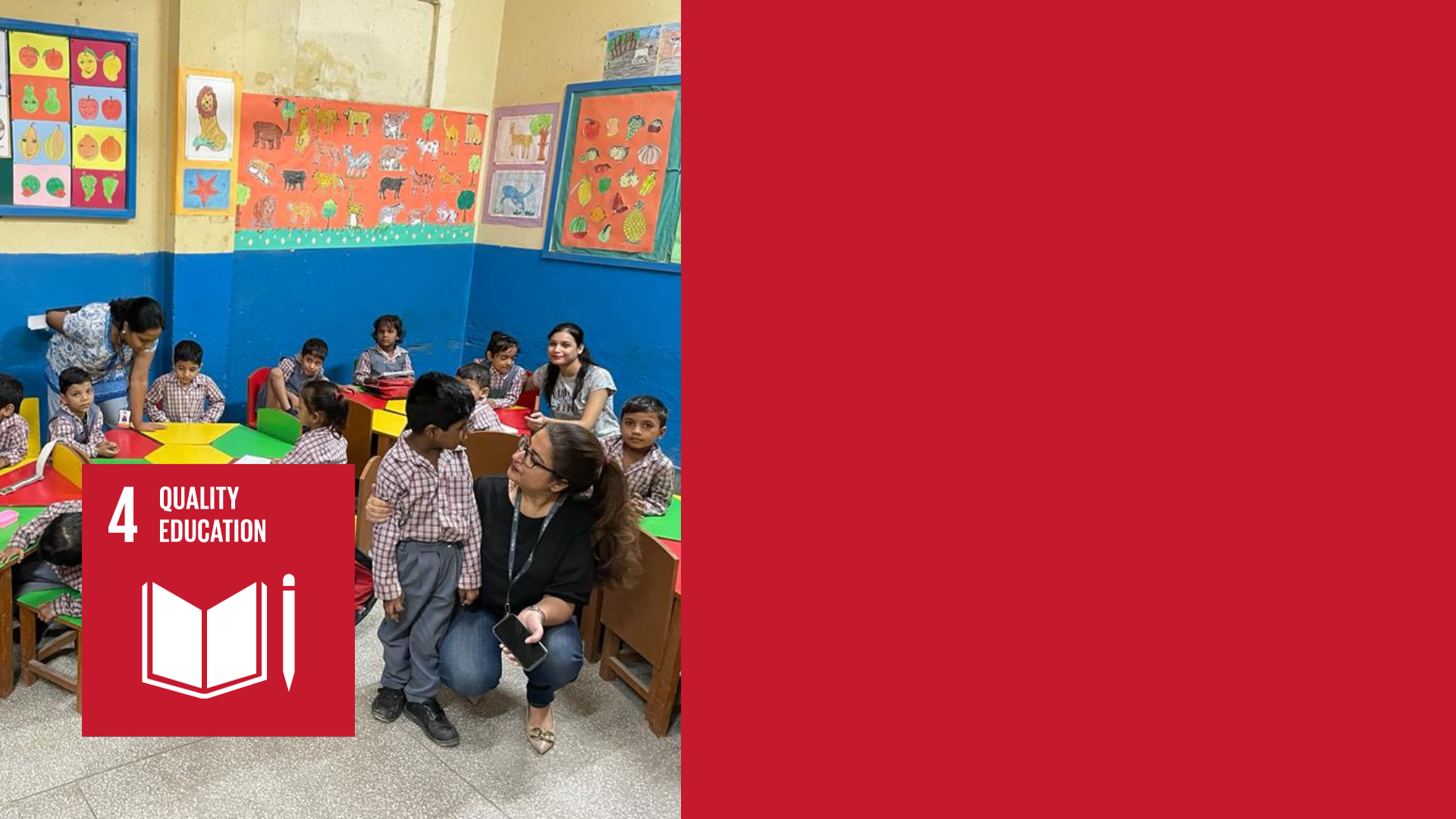
#1 End poverty in all its forms everywhere
Around the globe, millions of people cannot get a loan to start a business, buy a car or buy a home, because they do not have a credit history.
Through new information tools that help to build a more complete picture of creditworthiness, LexisNexis Risk Solutions are equipping lenders with the information they need, allowing them to extend credit to the financially excluded for the first time.
"Worldwide, the World Bank estimates that 2bn people lack access to formal financial services. They are the “unbanked” – people without access to even basic transaction accounts. This is especially a problem for the poor, for women, and for people in rural areas. Without access to credit, the climb out of poverty can be insurmountable."
Read the full story about LexisNexis Risk Solutions' focus on leveraging data and digital technology to transform financial services provision for the “credit invisible and how data has become the new weapon in the fight against financial exclusion here.
In episode 3 of Unique Contributions, a RELX podcast -How do you access financial services when you're 'invisible'? - YS Chi, Director of Corporate Affairs at RELX and Chairman of Elsevier speaks with Steve Elliot, UK Managing Director of LexisNexis Risk Solutions who shares his thoughts on how to address the issue in the UK; and with Carolina Costa, RELX Head of Government Affairs for Latin America, who says Brazil is getting it right. Listen to the episode here.
Target 1.4: By 2030, ensure that all men and women, in particular the poor and the vulnerable, have equal rights to economic resources, as well as access to basic services, ownership and control over land and other forms of property, inheritance, natural resources, appropriate new technology and financial services, including microfinance
#2 End hunger, achieve food security and improved nutrition
The more inclusive the pool of scientists, the more robust the science. Women scientists from the Global South often make life-changing contributions to the advancement of the Sustainable Development Goals (SDGs), identifying problems and finding solutions that others have not considered – but often experience isolation, lack of role models and visibility.
For the past ten years, the Elsevier Foundation has collaborated with the Organization for Women in Science (OWSD) to address these issues through a unique awards and recognition program for early career women scientists from the Global South. Since 2013, 58 researchers from 33 countries have won the Awards.
In 2023, with a focus on food security, the awards recognised the vital work of seven women scientists including Prof Eugenie Kayitesi from Rwanda. Eugenie Kayitesi is a food scientist, who is trying to improve nutrition, diet diversity and food security in Africa developing unique products from underutilized food sources, as well as improving their nutritional composition and health promoting constituents. The core of her research relates to indigenous, underutilized African plant-based foods, such as legumes, cereals, green leafy vegetables and fruits. Her work has highlighted the importance of using readily available and affordable food crops to create food products with improved nutritional, functional and sensory quality. Read more about the 2023 winners here.
Elsevier publishes the journal Global Food Security, contributing to better understanding of the drivers of sustainable food security and how challenges to achieving this can be most effectively overcome. Global Food Security enables researchers, policymakers, and practitioners to access and engage with the most recent research and perspectives on food security drawn from across the diversity of disciplines that contribute to understanding of how sustainable food security can be achieved for all.
Target 2.4: By 2030, ensure sustainable food production systems and implement resilient agricultural practices that increase productivity and production, that help maintain ecosystems, that strengthen capacity for adaptation to climate change, extreme weather, drought, flooding and other disasters and that progressively improve land and soil quality
#3 Ensure healthy lives and promote well-being for all
Access to information is critical in achieving the SDGs - empowering the public to make decisions, informing policy making and enabling effective implementation and monitoring. As an information analytics company and academic publisher specializing in science and health, Elsevier is committed to achieving SDG 3 Good heath and wellbeing for all, by supporting researchers and health professionals through its content, data, and analytics.
Through its programme of Commissions, The Lancet editors work with academic partners to identify the most pressing issues in science, medicine, and global health, with the aim of providing recommendations that change health policy or improve practice.
Commissions have included A UNAIDS–Lancet Commission on Defeating AIDS—Advancing Global Health; Accelerating the elimination of viral hepatitis and Building a tuberculosis-free world: The Lancet Commission on tuberculosis. Read more about the Lancet and Lancet Commissions here.
“It is our goal to do everything we can to ensure that our unique strengths in content, data, and analytics help researchers and health professionals make the targets set by the United Nations in 2015 a reality.”
Target 3.3: By 2030, end the epidemics of AIDS, tuberculosis, malaria and neglected tropical diseases and combat hepatitis, water-borne diseases and other communicable diseases
#4Ensure inclusive and equitable quality education
RELX Cares, our global community programme, supports employee volunteering and giving that makes a positive impact on society. The mission of RELX Cares is education for disadvantaged young people that advances one or more of our unique contributions as a business. Employees have up to two days’ paid leave per year for their own community work and a network of over 240 RELX Cares Champions ensures the vibrancy of our community engagement.
Every year, RELX Cares Champions award funding to local and developing world projects that advance the RELX Cares mission of education for disadvantaged young people. In 2022, RELX Cares Champions donated $250,000 to 22 charities supporting over 15,000 young people.
Projects included creation of a children’s corner in a library in Zambia where 42% of the population are living in extreme poverty; legal advocacy and education for low-income children and families from underprivileged communities in Los Angeles, USA; improving learning for young people in rural India affected by school closures during the pandemic; a weekly group intervention programme designed to support pregnant and parenting teen girls in Philadelphia, USA; providing girls in rural areas of Ghana with education in STEM (science, technology, engineering and maths) education and a mentoring programme for at-risk young people in New South Wales, Australia
Target 4.5: By 2030, eliminate gender disparities in education and ensure equal access to all levels of education and vocational training for the vulnerable, including persons with disabilities, indigenous peoples and children in vulnerable situations
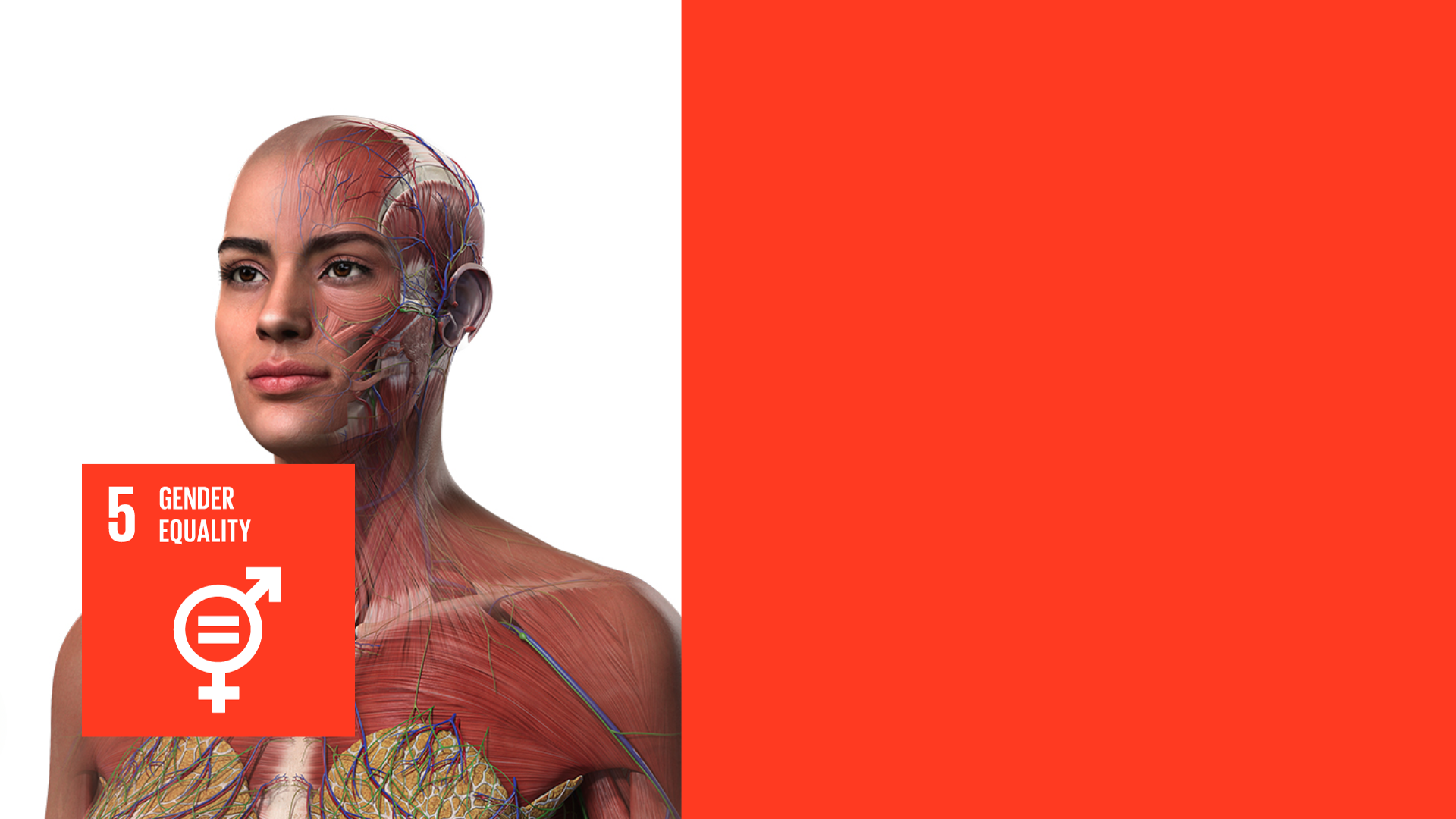
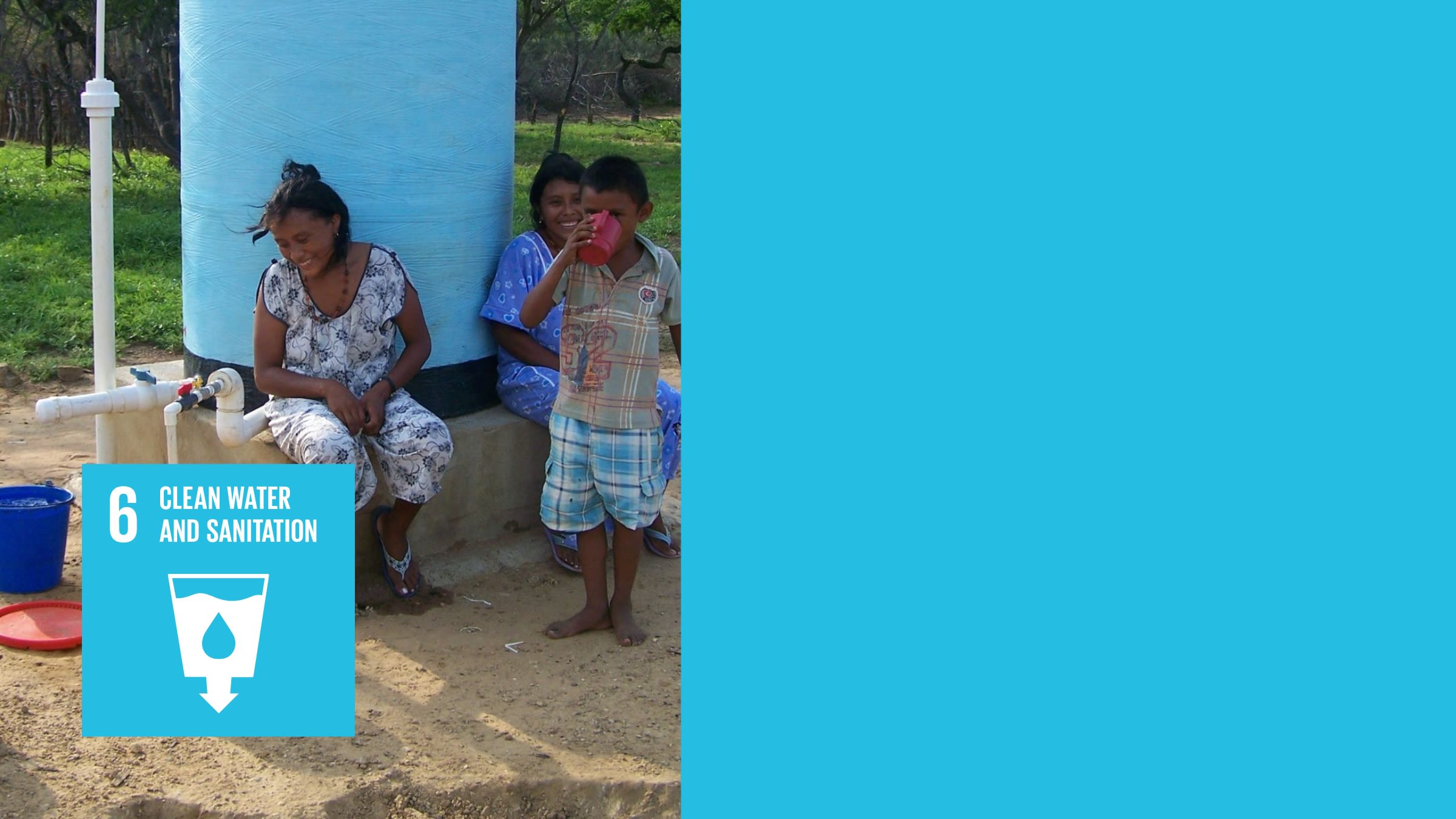
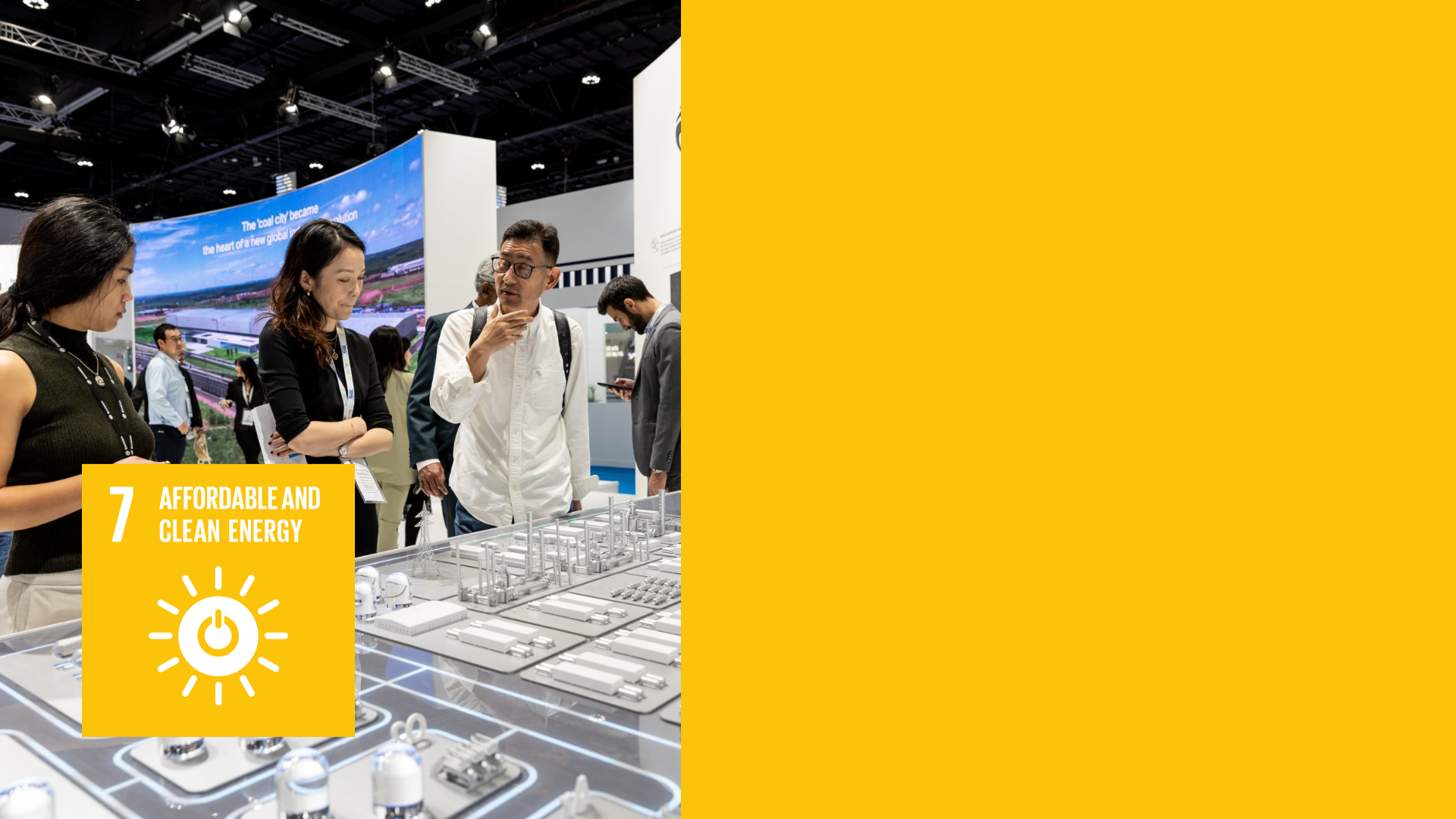
#5Achieve gender equality and empower all women and girls
In 2022 Elsevier launched its Complete Anatomy female model, the most advanced full female anatomy model available in the world.
The innovative 3D solution marks a major milestone in education equality, allowing educators to visualise, edit and teach anatomy entirely from the female perspective for the first time, all in realistic 3D detail.
For centuries, the study of anatomy was largely limited to the male, often European form. Female and non-European bodies were considered only in terms of how they were different from the male rather than being represented in their own right.
This continues today, with far-reaching implications for the medical diagnosis and treatment of women, ethnic minorities, transgender and non-binary communities. Did you know, for example, that in the UK, Black women are four times more likely to die in pregnancy or childbirth?
Elsevier’s complete 3D female anatomy model stands shoulder-to-shoulder with the male figure for the very first time, taking a giant step towards tackling the unconscious bias that exists across the medical profession.
Discover more about Elsevier's Complete Anatomy female model - the most advanced 3D full female model that enables educators to visualise, edit and teach anatomy entirely from the female perspective and all in realistic 3D detail. Watch time ~2 minutes
Target 5.1: End all forms of discrimination against all women and girls everywhere
#6 Ensure availability and sustainable management of water and sanitation for all
Through the RELX Environmental Challenge, we've been supporting clean water and sanitation innovators since 2011. Each year, the Challenge awards a $50,000 first prize and $25,000 second prize to projects that best demonstrate how they can provide sustainable access to safe water or sanitation. Winners also receive one year free access to ScienceDirect - the world's leading source for scientific, technical, and medical research.
Since 2011, more than $1 million has been awarded to projects in over 20 countries. Read more about the impact and continued success of Challenge winners here.
Target 6.1: By 2030, achieve universal and equitable access to safe and affordable drinking water for all.
Target 6.2: By 2030, achieve access to adequate and equitable sanitation and hygiene for all and end open defecation, paying special attention to the needs of women and girls and those in vulnerable situations
#7 Ensure access to affordable, reliable, sustainable and modern energy for all
Through its portfolio of future energy business events, RX is helping to accelerate the energy transition to cleaner and renewables sources - providing a platform for collaboration, networking and leadership and a showcase for clean energy transition. RX's portfolio of events includes shows such as World Future Energy Summit, All-Energy, Pollutec and World Smart Energy Week Tokyo.
World Future Energy Summit, the world’s leading event for future energy and sustainability, hosted 30,000+ visitors from 112 countries in 2023. The three day event in Abu Dhabi, UAE focuses on knowledge-sharing, forward-focused showcases and partnership deals, convening heads of government, business leaders, innovators and global thinkers to share ideas that are creating the blueprints for a sustainable future. The next event will take place 16 - 18 April 2024 in Abu Dhabi, UAE.
We exist to champion a sustainable planet for today and future generations. In this vital ambition, we believe that knowledge and collaboration are our most powerful currencies in order to propel our world forward in unprecedented ways. Ultimately, we’re striving for a cleaner, greener tomorrow.
Target 7.2: By 2030, increase substantially the share of renewable energy in the global energy mix
Target 7.a: By 2030, enhance international cooperation to facilitate access to clean energy research and technology, including renewable energy, energy efficiency and advanced and cleaner fossil-fuel technology, and promote investment in energy infrastructure and clean energy technologycit
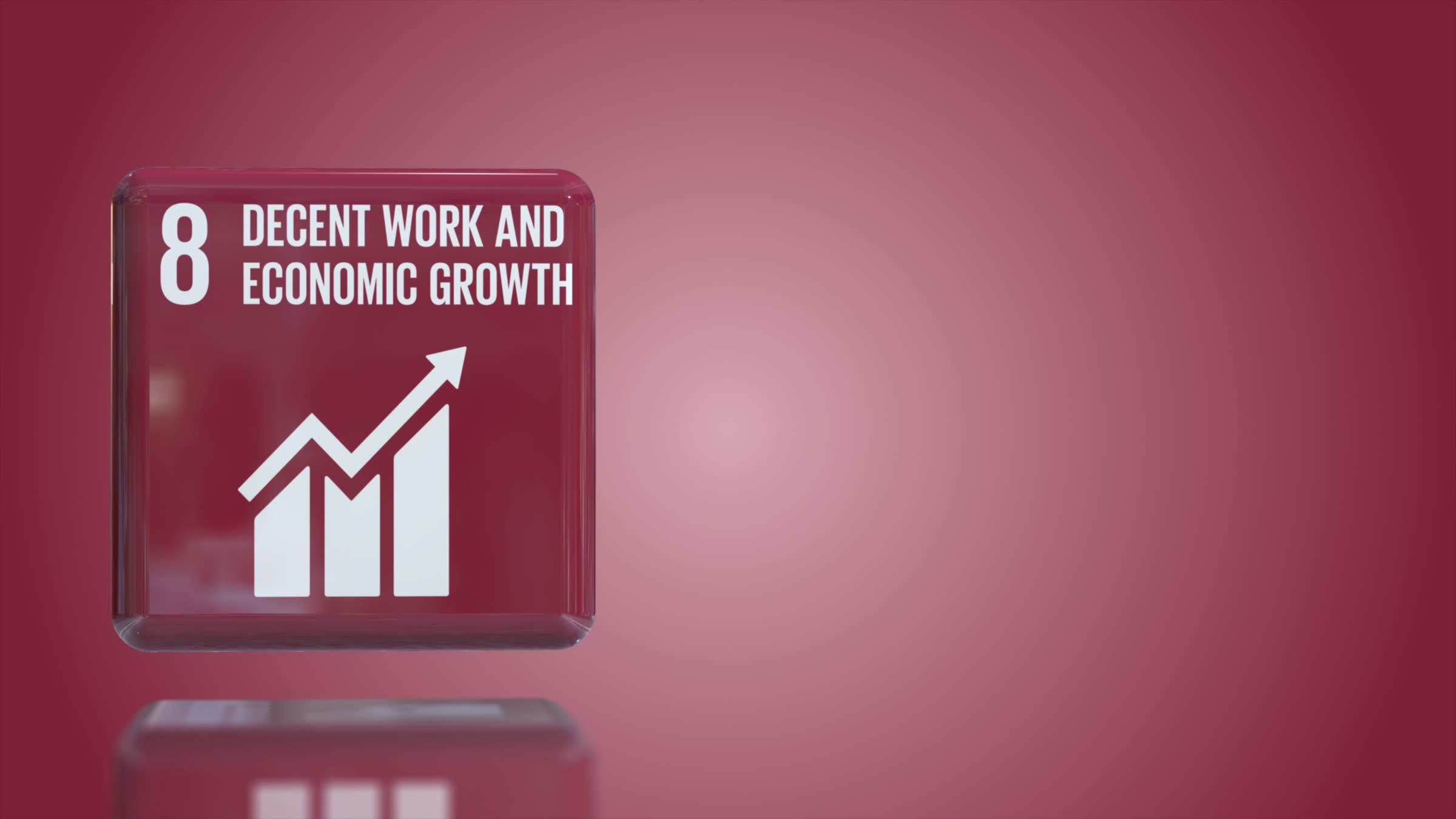
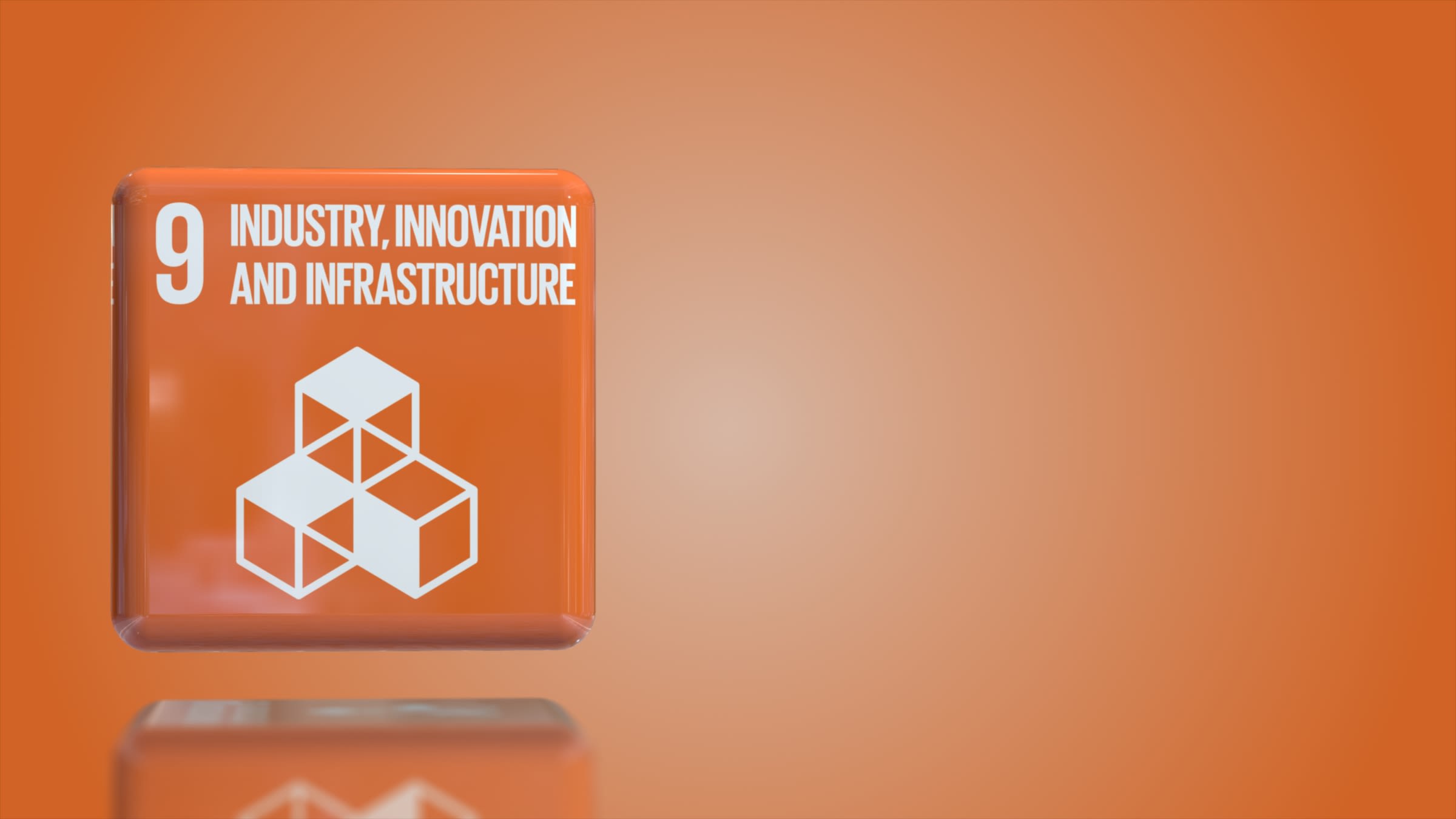
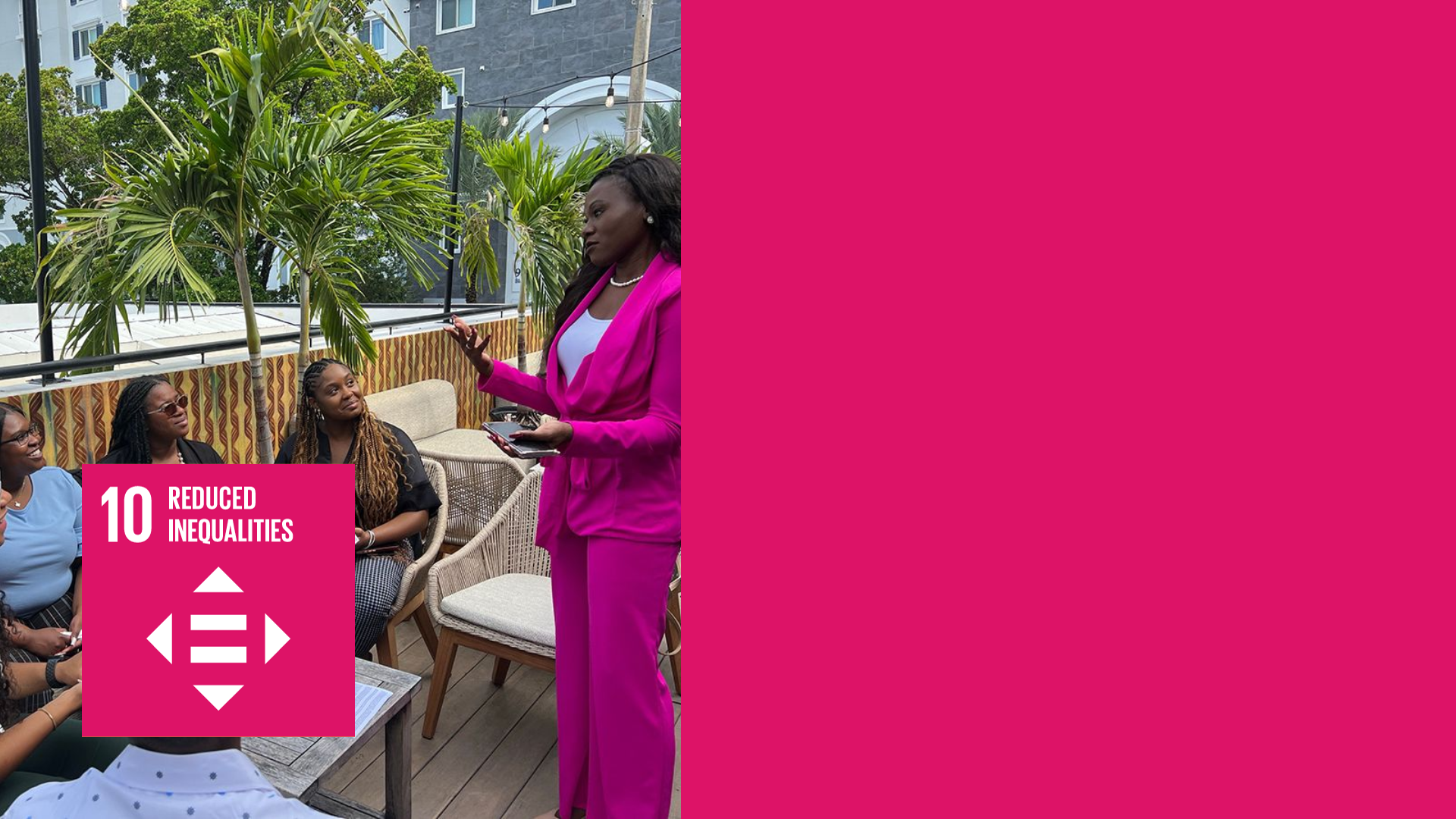
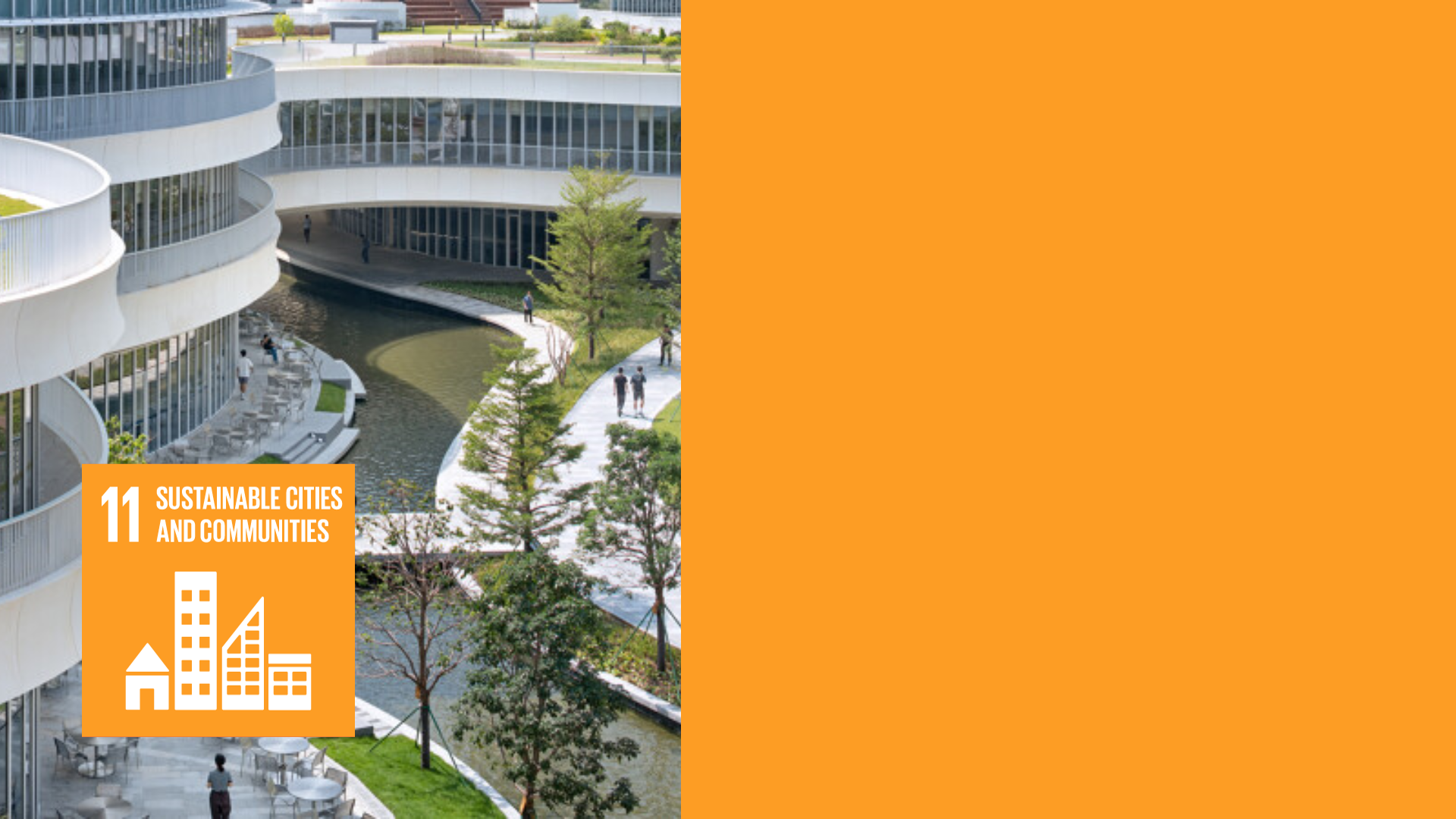
#8Promote sustained, inclusive and sustainable economic growth
Brightmine (formally XpertHR), part of LexisNexis Risk Solutions, has been providing HR solutions since 2002, empowering organisations to build successful workforces and create a purposeful workplace for all. Expert insight and practical tools help organisations achieve greater efficiency, reduce risk and increase employee engagement. And today, Brightmine are delivering smarter data analysis tools and cutting-edge technology to support future demands on HR in an increasingly digital world.
"Millennials and Gen-Z in the workplace are demanding that their organisations are ethical in the way in which they both interact with the world and their communities around them but also how they treat their employees and there is an innate sense of fairness that these employees really are insisting upon and so the people functions within the business are recognising that this is something that we absolutely need to be improving upon and address."
In this episode, Leila McKenzie-Delis, CEO and Founder of DIAL Global speaks to Scott Walker, CEO of Brightmine, part of Lexis Nexis Risk Solutions. Duration ~35 minutes
Target 8.5: By 2030, achieve full and productive employment and decent work for all women and men, including for young people and persons with disabilities, and equal pay for work of equal value
#9 Build resilient infrastructure, promote inclusive and sustainable industrialization and foster innovation
ICIS, part of LexisNexis Risk Solutions, partners with 90% of the world’s top 100 chemical companies and its recycling supply tracker profiles over 2,700 recycling plants globally, covering mechanical and chemical technologies, that support industry as it strives for plastics circularity as part of the sustainability agenda.
The ICIS Innovation Awards recognise companies that show high levels of innovation in products and processes, as well as in digital innovation, whilst providing benefits to the environment and advancing progress towards sustainability throughout.
Judges are looking for small-and-medium enterprises (SME) and large companies who are developing revolutionary products, processes, and digital innovations. These should demonstrate an innovative approach to business, whilst maintaining a strong focus on sustainability and the environment.
Target 9.4: By 2030, upgrade infrastructure and retrofit industries to make them sustainable, with increased resource-use efficiency and greater adoption of clean and environmentally sound technologies and industrial processes, with all countries taking action in accordance with their respective capabilities
#10 Reduce inequality within and among countries
The LexisNexis African Ancestry Network LexisNexis Rule of Law Foundation Fellowship program was launched in 2021 in in partnership with the Historically Black Colleges and Universities Law School Consortium (HBCULSC) to help eliminate systemic racism in legal systems.
The Fellowship consists of twelve law school students selected from a large, competitive applicant pool from HBCULSC schools including Florida Agricultural and Mechanical University College of Law, Howard University School of Law, North Carolina Central University School of Law, Southern University Law Center, Thurgood Marshall School of Law at Texas Southern University, and the University of the District of Columbia David A. Clarke School of Law.
Each Fellow is awarded $10,000 and spends nine months engaging in a unique experience that accelerates their career, develops their leadership skills, and creates opportunities to make a real difference. LexisNexis employees work with Fellows on projects with the shared goal of eliminating systemic racism in our legal system and implementing solutions while advancing the four key elements of the rule of law – equality under the law, transparency of law, independent judiciary, and accessible legal remedy.
Learn more about the LexisNexis African Ancestry Network LexisNexis Rule of Law Foundation Fellowship launched in 2021 to help eliminate systemic racism in legal systems. The Fellowship was created in partnership with the Historically Black Colleges and Universities Law School Consortium (HBCULSC). Watch time ~ 5 minutes
Target 10.3: Ensure equal opportunity and reduce inequalities of outcome, including by eliminating discriminatory laws, policies and practices and promoting appropriate legislation, policies and action in this regard
#11 Make cities and human settlements inclusive, safe, resilient and sustainable
MIPIM, a four day RX event held in Cannes, France seeks to influence and accelerate the transformation of the built environment. In 2023 the show convened 22,500 visitors from 90 countries providing a platform for networking, exhibiting and collaboration.
The MIPIM Awards recognise leadership in real estate and celebrates the most visionary, sustainable and useful projects in the world. Categories include overall sustainability and integration of a project in its environment and community. Among the winners recognised at MIPIM Awards 2023 was Hong Kong University of Science and Technology for Best Cultural, Sport and Education project.
New in 2024, the show will feature MIPIM x Co-Liv - a dedicated summit to foster industry collaboration and find solutions to the current housing crisis and MIPIM Challengers - a competition for young professionals, under 30, to challenge the real estate industry. Selected on a 600-words essay, 16 challengers will come to MIPIM to present new ideas and solutions to the biggest challenges facing the real estate industry.
MIPIM is a catalyst for concrete solutions, combining face-to-face discussions, thought leadership, development opportunities and global capital to drive change. We connect and inspire the international real estate community to create more sustainable, liveable and prosperous places for all.
Target 11.1: By 2030, ensure access for all to adequate, safe and affordable housing and basic services and upgrade slums
Target 11.6: By 2030, reduce the adverse per capita environmental impact of cities, including by paying special attention to air quality and municipal and other waste management

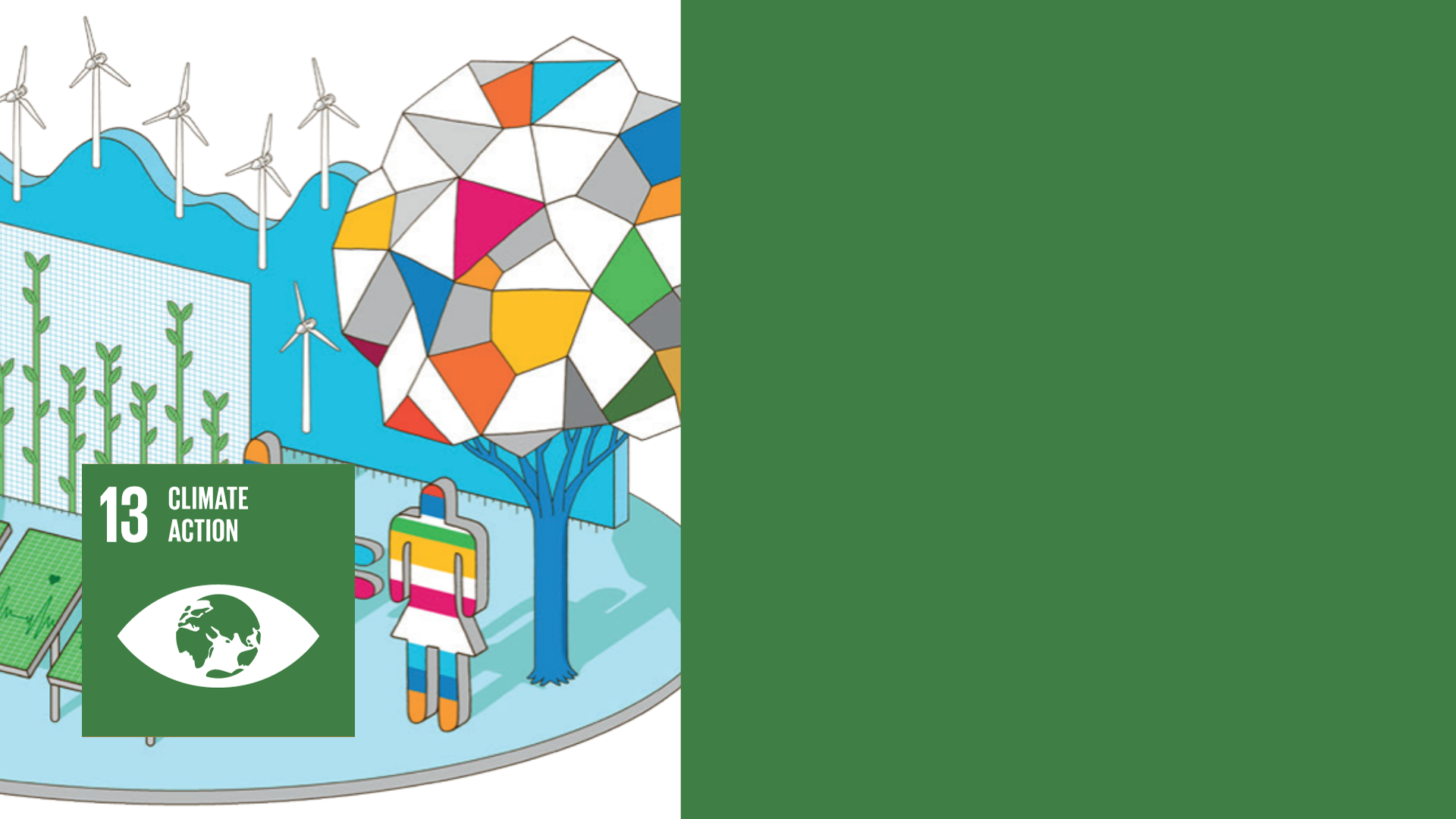
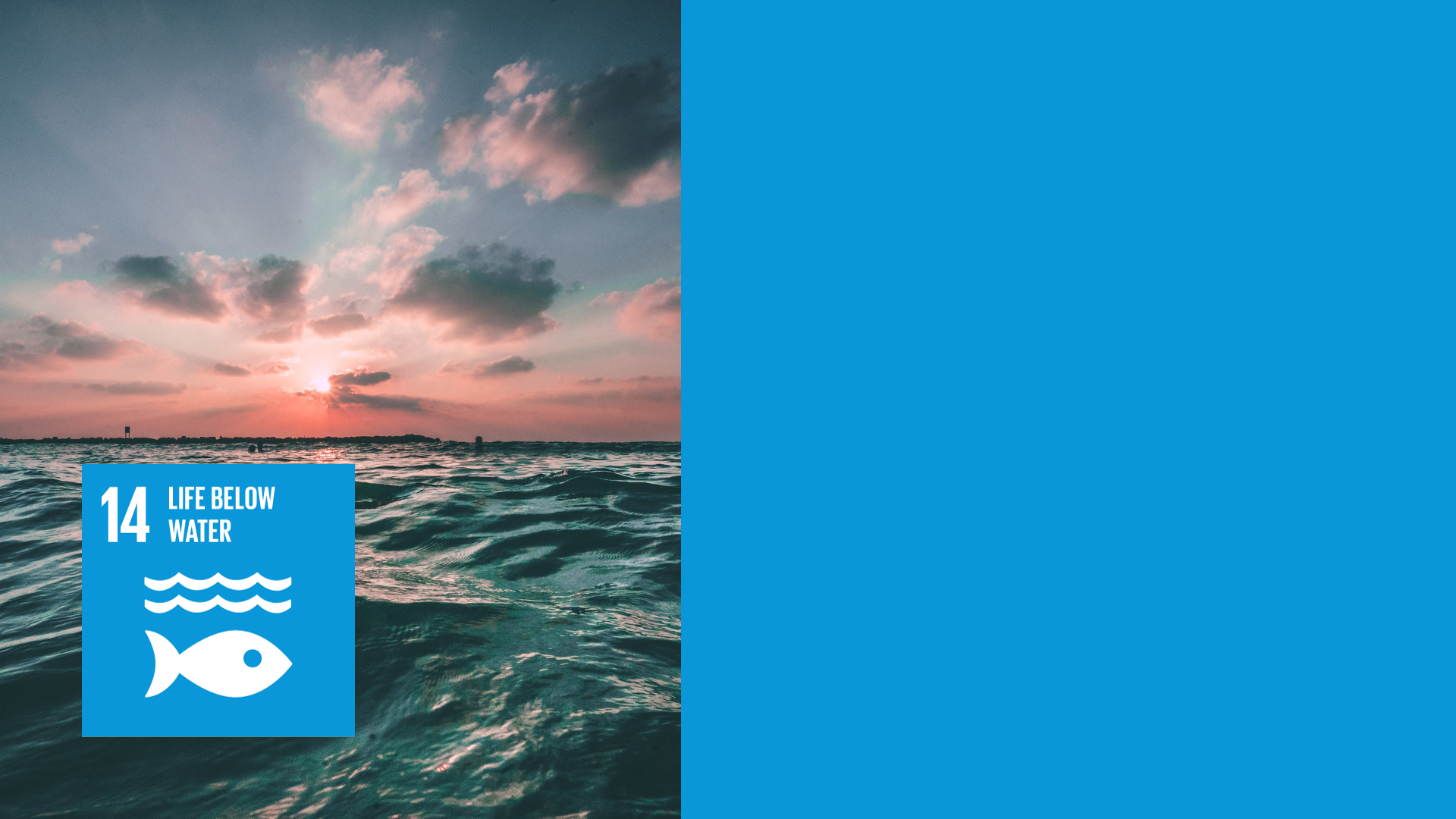
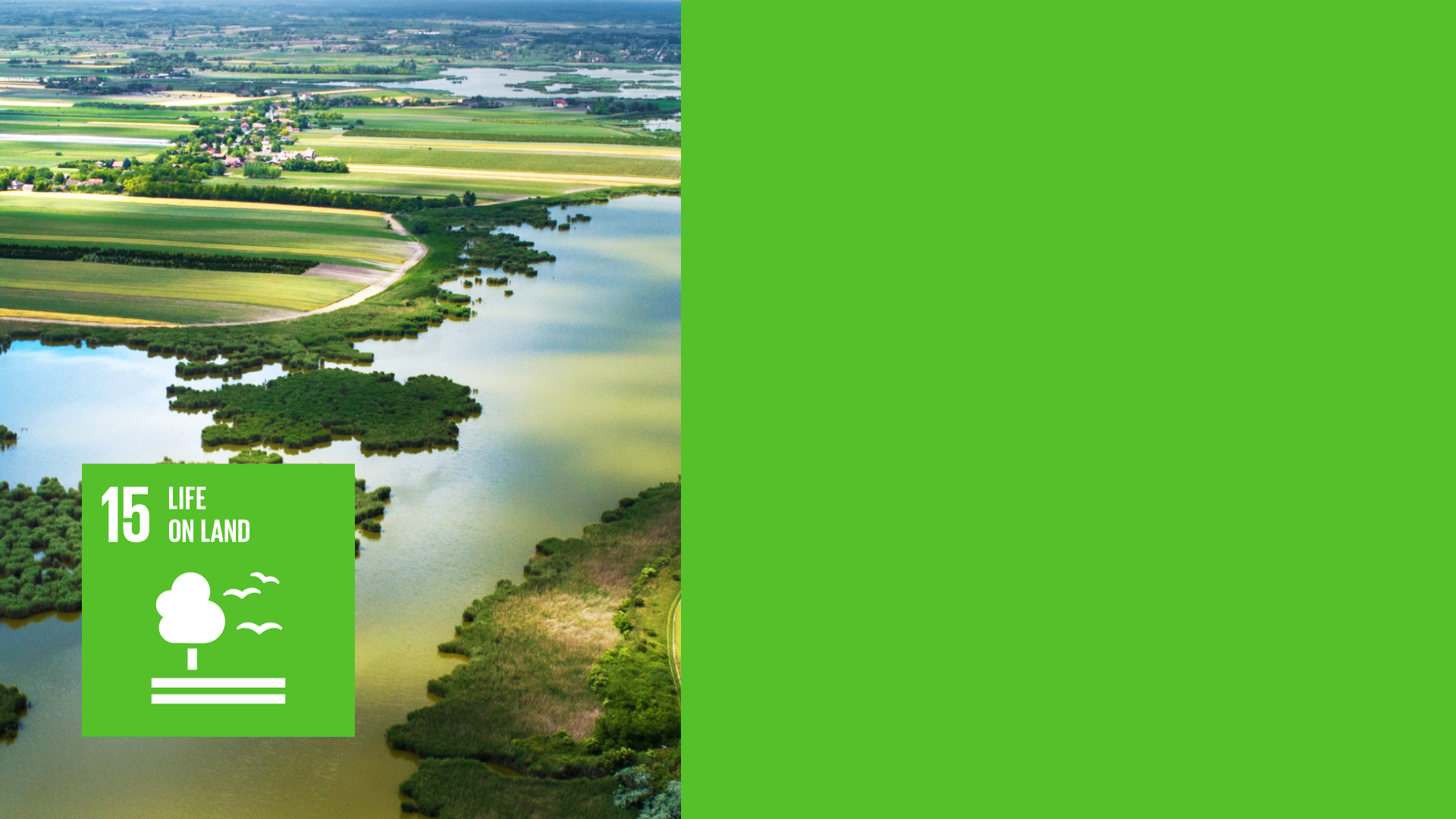
#12Ensure sustainable consumption and production patterns
As event hosts, RX has a unique opportunity to create positive change and promote sustainability. Events have the potential to inspire and educate attendees on the importance of sustainability, and to create a lasting impact in the communities where we operate. However, hosting events can also be resource-intensive and carbon-intensive, and if not managed carefully, can have a negative impact on the environment.
RX's Sustainability Playbook is designed to inform and support event and operations teams to make more sustainable event choices. All RX event teams are required to collect data for waste, energy and water using an RX template and venue partners are asked to do the same.
RX requires event and operations teams to work with our venue partners to understand their waste infrastructure and how recycled waste is separated from other waste streams; and, where possible, to take the following actions: provide options for exhibitors to dispose of recycled waste; weigh the separated landfill and recycling waste streams and report this information to RX and develop links to donation programmes for waste products and especially for food waste.
Read more about RX's journey to Net Zero here.
Target 12.5: By 2030, substantially reduce waste generation through prevention, reduction, recycling and reuse
#13 Take urgent action to combat climate change and its impacts
The Elsevier Foundation’s Chemistry for Climate Action Challenge is one of the Elsevier Foundation’s flagship partnerships. Together with Elsevier’s Chemistry journals, the Elsevier Foundation provides funding of 25,000 euros for 2 winning projects per year, implementing green and sustainable chemistry solutions in the Global South.
The Challenge award projects that use green and sustainable chemistry solutions to tackle some of the developing world’s greatest sustainability challenges – encouraging researchers to come up with new solutions.
Through its focus on Climate Action, the Chemistry for Climate Action Challenge also supports SDG5, Gender Equality , recognising the pivotal role that women play in combating climate change. Projects submitted to the Challenge must integrate a gender dimension (such as addressing the role of women in adapting to climate shifts and participating in policy-making and leadership roles) into their projects.
The 2023 winners will be announced at the 8th Elsevier Green & Sustainable Chemistry Conference taking place 13-15 May 2024 in Dresden, Germany.
Target 13.3: Improve education, awareness-raising and human and institutional capacity on climate change mitigation, adaptation, impact reduction and early warning
Target 13.b: Promote mechanisms for raising capacity for effective climate change-related planning and management in least developed countries and small island developing States, including focusing on women, youth and local and marginalized communities
#14 Conserve and sustainably use the oceans, seas and marine resources for sustainable development
Ocean & Coastal Management published by Elsevier is the leading international journal dedicated to the study of all aspects of ocean and coastal management from the global to local levels.
The journal publishes peer-reviewed research from all disciplines and inter-disciplinary and co-designed research relating to the the sustainable development and conservation of oceans and coasts. Studies that critically assess current management practices and governance approaches are encouraged with a specific focus on improvement of management practices.
Elsevier is dedicated to helping to ensure quality research accelerates progress for society by organising the review, editing and dissemination of around 18% of the world’s scientific articles. In 2022 Elsevier published more than 600,000 articles over 2,800 journals from almost 2.7m submitted.
Target 14.a: Increase scientific knowledge, develop research capacity and transfer marine technology, taking into account the Intergovernmental Oceanographic Commission Criteria and Guidelines on the Transfer of Marine Technology, in order to improve ocean health and to enhance the contribution of marine biodiversity to the development of developing countries, in particular small island developing States and least developed countries
#15 Protect, restore and promote sustainable use of terrestrial ecosystems
RELX hosts an annual SDG Inspiration Day to bring together thought leaders, corporate representatives, students, investors, governments, and NGOs to explore pressing issues, gain practical insight, and inspire action on the United Nations Sustainable Development Goals (SDGs).
In 2023 more than 1500 people came together virtually for the ninth edition of RELX SDG Inspiration Day: "Not Too Late for Nature: Biodiversity and the UN Sustainable Development Goals." Eminent conservationist Dr. Jane Goodall, DBE, Founder of the Jane Goodall Institute and UN Messenger of Peace and 8th United Nations Secretary General Ban Ki-moon, were keynote speakers.
Dr. Jane Goodall, DBE, founder of The Jane Goodall Institute and UN Messenger of Peace, highlights the significance of adopting a sustainable lifestyle and the need to take urgent action against threats to biodiversity in her inspirational keynote address at RELX SDG Inspiration Day 2023.
Catch up on RELX SDG Inspiration Day: "Not Too Late for Nature: Biodiversity and the UN Sustainable Development Goals here.
Target 15.5: Take urgent and significant action to reduce the degradation of natural habitats, halt the loss of biodiversity and, by 2020, protect and prevent the extinction of threatened species

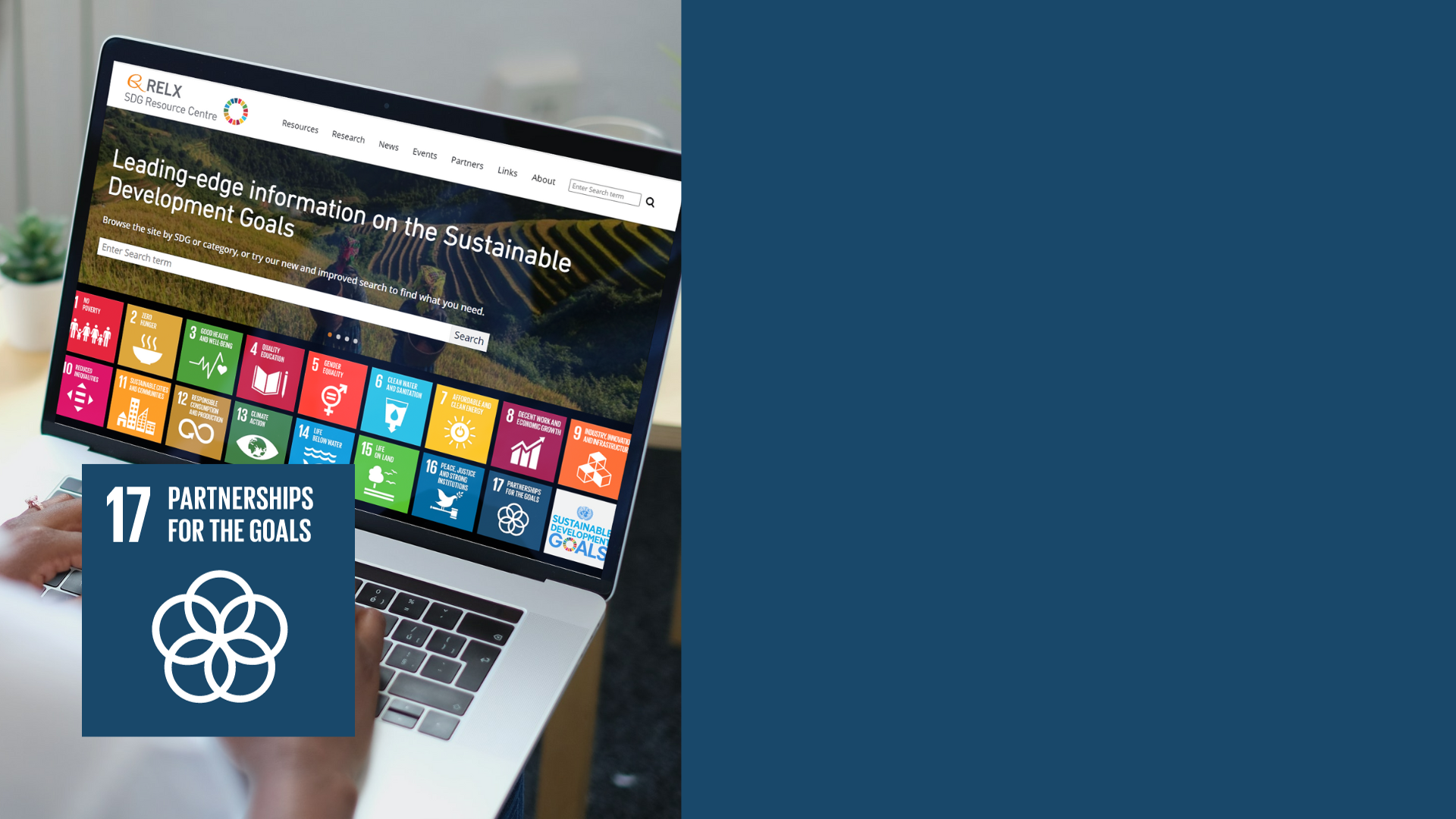
#16 Promote peaceful and inclusive societies for sustainable development, provide access to justice for all and build effective, accountable and inclusive institutions at all levels
LexisNexis Legal & Professional employs around 10,500 people serving customers in more than 150 countries. Everything it does as a business serves to advance the rule of law around the world in the belief that the rule of law is the foundation for the development of peaceful, equitable, and prosperous societies.
Working with partners, the LexisNexis Rule of Law Foundation endeavors to accelerate the extension of the rule of law to all nations by putting information and technology in the hands of those who can bring about change.
Read more about how LexisNexis is advancing the rule of law here.
Target 16.3: Promote the rule of law at the national and international levels and ensure equal access to justice for all
#17 Strengthen the means of implementation and revitalize the Global Partnership for Sustainable Development
In 2017, RELX launched the free to access SDG Resource Centre which contains articles, tools, data and news from across RELX businesses and key partners. The SDG Resource Centre is aimed at customers, investors, employees, partners, NGOs, corporate peers, and the public and is designed to support the UN in implementing the SDGs and broadening awareness and understanding. The SDG Resource Centre had over 155,000 unique users by the end of 2022, a 16% increase over the previous year and is constantly expanding and evolving. There are plans to create more original content – particularly film – and to increase automation incorporating AI features, such as article recommenders and search prompts.
The site hosts content from key partners including the United Nations Global Compact of which RELX has been a member since 2003. Content includes the SDG Stocktake Report and the Sustainable Development Goals Playbook for Small and Medium Sized Enterprises.
Read more about the SDG Resource Centre here.
Target 17.6: Enhance North-South, South-South and triangular regional and international cooperation on and access to science, technology and innovation and enhance knowledge sharing on mutually agreed terms, including through improved coordination among existing mechanisms, in particular at the United Nations level, and through a global technology facilitation mechanism


